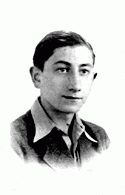You searched for: Theresienstadt
<< Previous | Displaying results 151-160 of 207 for "Theresienstadt" | Next >>
-
Berga-Elster ("Schwalbe V")
ArticleAt the Berga-Elster subcamp of Buchenwald, prisoners were forced to do dangerous and brutal work in tunnels to support fuel production for the German war effort.
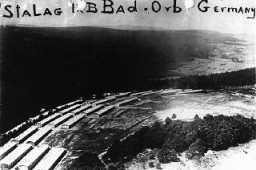
-
Tomas Kulka
ID CardTomas' parents were Jewish. His father, Robert Kulka, was a businessman from the Moravian town of Olomouc. His mother, Elsa Skutezka, was a milliner from Brno, the capital of Moravia. The couple was well-educated and spoke both Czech and German. They married in 1933 and settled in Robert's hometown of Olomouc. 1933-39: Tomas was born a year and a day after his parents were married. When Tomas was 3, his grandfather passed away and the Kulkas moved to Brno, which was his mother's hometown. On March 15,…
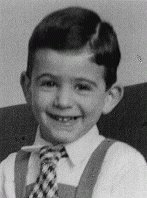
-
Irene Weber describes how obtaining a work card could offer protection from deportation
Oral HistorySeparated from her family, Irene was deported from the Sosnowiec ghetto to the Gleiwitz camp in March 1943. After a death march and an attempted escape from a transport out of Gleiwitz, Irene was imprisoned in Prague, then Theresienstadt, where as a political prisoner she was sentenced to death by starvation. For the five months before liberation, she shared a cell with 59 ailing women. Irene was the sole member of her Jewish family to survive the war.
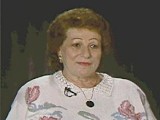
-
Hana Mueller Bruml describes an encounter with a non-Jewish friend in Prague
Oral HistoryIn 1942, Hana was confined with other Jews to the Theresienstadt ghetto, where she worked as a nurse. There, amid epidemics and poverty, residents held operas, debates, and poetry readings. In 1944, she was deported to Auschwitz. After a month there, she was sent to Sackisch, a Gross-Rosen subcamp, where she made airplane parts at forced labor. She was liberated in May 1945.
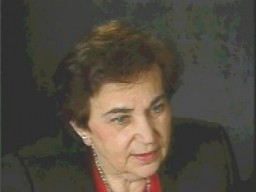
-
Bergen-Belsen: Key Dates
ArticleExplore a timeline of the history of the Bergen-Belsen camp in the Nazi camp system. Initially a POW camp, it became a concentration camp in 1943.
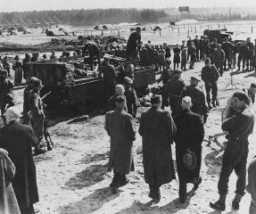
-
Wannsee Conference and the "Final Solution"
ArticleAt the Wannsee conference of January 1942, Nazi Party and German government officials gathered to coordinate implementation of the “Final Solution to the Jewish Question.”
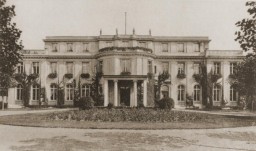
-
1945: Key Dates
ArticleExplore a timeline of key events during 1945 in the history of Nazi Germany, World War II, the Holocaust, and liberation and the aftermath of the Holocaust.
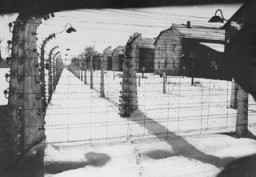
-
“Czech Family Camp” at Auschwitz Liquidated
Timeline EventJuly 11, 1944. On this date, the liquidation of the "Czech family camp" in Auschwitz took place. Michael Kraus later described the event in his diary.
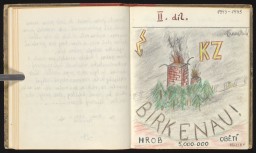
-
Abraham Malnik
ID CardAbraham was born to a Jewish family in Kovno, a city picturesquely situated at the confluence of two rivers. With an opera company, chic stores and lively nightclubs, it was often called "Little Paris." The city had a large Jewish community of 38,000 and was known for its extensive Hebrew school system. Abraham's father was a barber, and his mother was a beautician. 1933-39: When Abraham was a kid his family used to go to his grandparents' house for Sunday dinner. In the winter they would take a…
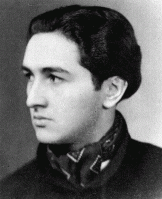
-
Moniek Rozen
ID CardOne of 12 children, Moniek grew up in Dabrowa Gornicza, an industrial town in western Poland. His father, Jacob, owned a general store, which he was forced to close in 1938 as the result of a boycott by local antisemites. Moniek attended both public and Jewish schools, and his father hoped that one day he would become a rabbi. 1933–39: On September 1, 1939, Moniek was awakened by the sounds of airplanes flying overhead as German forces invaded Poland. As the war drew closer, Moniek fled eastward, but…
